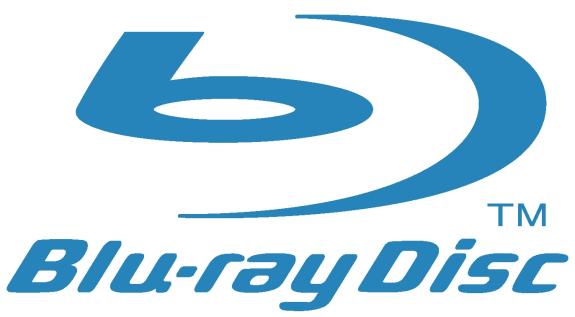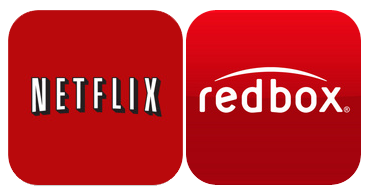Cinavia DRM: How I Learned to Stop Worrying and Love Blu-ray’s Self-Destruction
by Ganesh T S on March 21, 2012 11:00 AM EST- Posted in
- Home Theater
- Blu-Ray
- DRM
- Cinavia
DRM (Digital Rights Management) is intended to protect media from being played in an unauthorized manner. However, more often than not, it fails to serve the purpose. Many people in the content industry are fully aware that it is not possible to stop media piracy. They view DRM as a method to slow down the pirates. The panel discussion on anti-piracy measures at the HPA 2011 Tech Retreat compared this to using a key to lock a car, even though a thief with proper equipment could still steal it.
High definition content is valued by the content owners, resulting in extra efforts being taken to protect them from being pirated. For example, while standard definition Netflix streams play on a variety of platforms, high definition streams require more secure systems with protection across all stages of playback. Similarly, not much effort has been taken to stop the usage of open source DVD decrypters / decoders, which mean that the consumer doesn’t need to invest in a licensed player to play back DVDs. Open source software like VLC can play back protected DVDs without any issues.
Blu-rays, on the other hand, with their high definition content, are yet to be hacked enough to be played back with full experience using open source tools. There is a constant tussle going on between the decryption tool makers (who enable the Blu-ray disc content to become unprotected) and the Blu-ray publishers who don’t want this to happen (and try to find new ways to encrypt their Blu-rays without breaking player compatibility in the field). The net result is that almost every new Blu-ray fails to play back on a player if it doesn’t have the latest firmware updates. This is obviously a drawback for consumers who just want to put the disc in the tray and enjoy the movie.

In today’s piece, we will be concentrating exclusively on Blu-rays. A look at the market trends seems to indicate that online streaming services like Netflix and Hulu are overtaking conventional media distribution channels such as DVDs and Blu-rays. However, this doesn’t mean that optical media will die out anytime soon. Currently, a large number of consumers don’t have reliable enough Internet access to guarantee a good experience with premium streaming services. Market research indicates that Blu-ray sales have indeed shown an annual increase. This growth can be attributed to the low cost of Blu-ray players (some could be found for as low as $49 last November) and the rising number of $5 Blu-rays available in the bargain bins of various big box retailers. Blu-ray rentals from companies such as Redbox have also shown an increase in popularity.

The BDA sees Blu-ray shipments growing for the foreseeable future. However, they have also realized that the future of the Blu-ray industry lies in eventually adapting to the cloud / Internet infrastructure. The UltraViolet initiative is geared towards this. We will look at this in detail later in the piece.
The rise of VoD services will definitely threaten Blu-ray, particularly because of the ease of use associated with them. In almost all cases, one can start watching a movie on Netflix or Vudu with a few clicks. Compare this with current Blu-rays where users have to put up with a number of trailers and copyright messages before the movie starts playing. It is no wonder that consumers with high speed Internet often prefer services like Vudu over Blu-rays. Given this situation, Blu-rays continue to come with pesky DRM mechanisms. The latest in this lineup is Cinavia. Before going into its details, we will have a brief overview of all the DRM mechanisms involved in Blu-rays.










121 Comments
View All Comments
ganeshts - Thursday, March 22, 2012 - link
We are really sorry for using DailyMotion, but the fact is that there is a risk of copyright infringement or similar action notice sent to YouTube from the studios (further considering the fact that what we have written in the piece is a bitter pill to swallow for them).YouTube's policy is 3 strikes and channel closed (no questions entertained). We can't take the risk of endangering the official YouTube channel for this purpose. However, I have taken the risk of uploading the videos on YouTube from another account after reading your comment. The links are here:
Cinavia - Message Code 01 - The Wolfman.MTS : http://youtu.be/rtw2RvoBxCE
Cinavia - Message Code 03 - Battlefield LA - 20 Minutes Delay.ts : http://youtu.be/5TEw0dsWU1Q
Cinavia - Message Code 03 - The Losers.MTS : http://youtu.be/KYbR0WSkxaM
strangevil - Thursday, March 22, 2012 - link
Cinavia is one of the main reasons why I stopped using my PS3 as a media playback device and have moved to the 360. I loved the UI of the PS3 as it lets you skip by looking at frames, but I bought my PS3 from the US and I live in UK, so every time I buy an official Blu-Ray, it doesn't work due to some stupid region restrictions. and for the ones that do work, I have to sit through 10-15 min of commercials and stupid warnings. So every time the warning pops up, I just plug my HDD out of the PS3 and pop it into my 360 and continue watching.I do what most other 'sane' people do... I pirate sh!t off the internet now. I tried to go the official route... I really tried, but you get treated like some garbage and have to sit through 10 min of studios flashing warnings that I'll go in jail if I pirate this even though I just legally bought it. Fu*k that sh!t.
cjs150 - Thursday, March 22, 2012 - link
I am a legitimate customer. I buy Blu-rays. What I want to do is as follows:Rip down to NAS and watch them anywhere in house or portable player (Tablet, Laptop, PSP). That means I also need to have a SD version for some of the smaller screens.
I do not want all the health warnings etc.
Scrub regional coding
Does that make me someone who is ripping off artists - no it does not.
And finally the price is way too high in the UK
khory - Thursday, April 5, 2012 - link
This describes my situation perfectly.Willhouse - Thursday, March 22, 2012 - link
Is this article about the downfalls of DRM or a gripe about how Blu-ray discs contain too many difficult-to-skip trailers? If there were no trailers, why would one bother stripping the DRM? Further, what does anybody care if there is DRM if it can simply be stripped off and the content then streamed? Is the argument that spending money on DRM ultimately raises the cost of Blu-ray discs.If so, just vote with your wallet. We're not talking about bread here folks.
Ah well, I guess it's not my issue. I'm fine just renting Blu-rays.
fuzzymath10 - Thursday, March 22, 2012 - link
Agreed. I don't think I've ever had a BD fail to play, and it takes seconds to skip the previews after pressing [>|] a handful of times (yes, a bit inconvenient but we have remote controls and it sure beats fast forwarding a VHS tape).The crux of the problem is "why get something for $X when you can get it for free?", where X>0. Of course more people would pay $2 vs $20, but not 10x as many, and there will still be plenty of folks who won't even pay $2 even if they could afford it.
What I don't understand is that part of the argument is that the movies offered are "crappy", i.e. not worth paying for. Yet once it's free, it's worth wasting 2 hours watching/having on a hard disk. Pirated crap is still crap.
Unfortunately, neither side is willing to give the other the benefit of a doubt.
colonelciller - Wednesday, March 28, 2012 - link
the point is that DRM = Pain in the @ for the person who purchases the productDRM has ZERO impact on piracy and as such is an abject failure.
What is the point of DRM since all it accomplishes is forcing legitimate folk to suffer and stare confusedly as their home entertainment system that is talking about firmware upgrades... I can guarantee you my parents haven't got a f'n clue what firmware is.
lundman - Thursday, March 22, 2012 - link
I do occasionally buy Blurays, as it is currently my only way to support movies I like. I never play the actual retail disk though. One of my recent purchases was The Thing (2011) bluray, which comes with UltraViolet.
Curiosity over-powering me, I thought to check out UltraViolet. I typed in the WWW address, and the numbers, and in less than a second, I was told that "UltraViolet is not available in your country". With no option to do anything else, but close the browser. The disk is not region protected either, just not for "my kind".
Why is it *my* money is no good anyway? What is it about my cash that stinks so much :)
I would even be happy with a system where I can just "donate" money to the movie makers directly, and only get a receipt back (for legal defence). I'll get the movies by other means...
otbricki - Friday, March 23, 2012 - link
Netflix and Hulu are non-starters for anyone who cares enough about the fidelity of what they are watching to want a BD. The user experience is awful by comparison. The fidelity is crummy, sound is barely passable, and the content choices very limited.And guess what - the studios will keep it that way because they want to preserve their optical disk market.
Throw monthly bandwidth caps on top of this, plus the fact that studios can (and do) pull content from streaming distribution you have a situation that clearly points to the fact that physical media are going to be with us for the forseeable future.
Personally I'm fine with that because I want something that gives ME control over what I can watch. Not some studio or streaming service executive.
Sasparilla - Friday, March 23, 2012 - link
"...and the content choices very limited. And guess what - the studios will keep it that way because they want to preserve their optical disk market."Bingo.